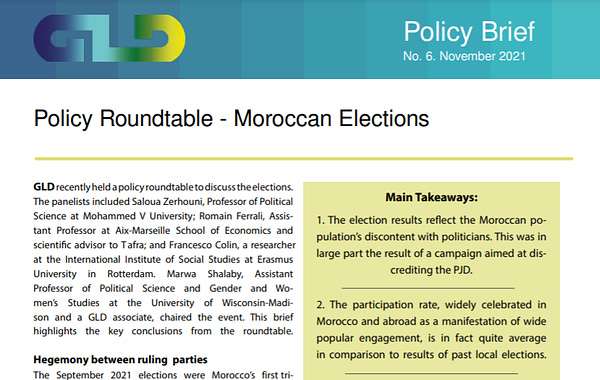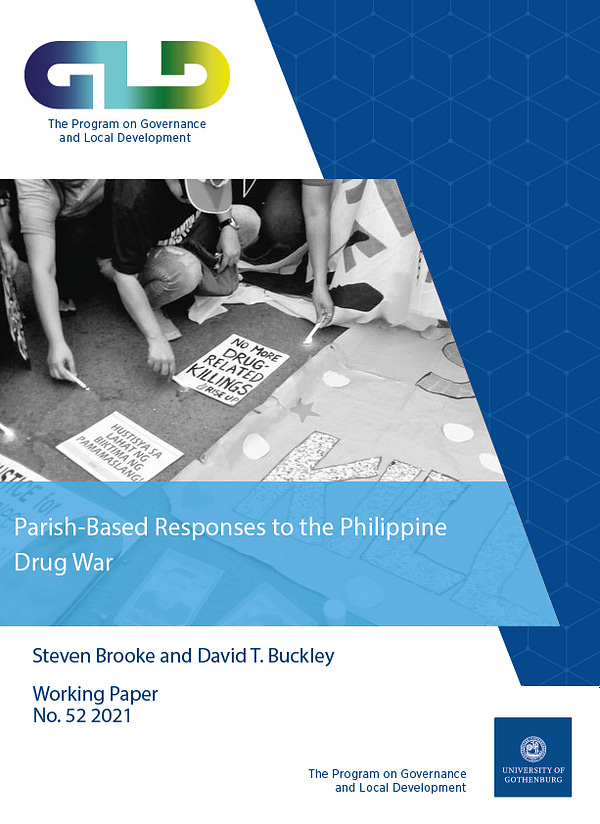Greetings from Sweden! I have traded in the sunshine (and fog!) of San Francisco for the crisp, snowy charm of Scandinavia. I am thrilled to join the Program on Governance and Local Development (GLD) at Gothenburg University as a Researcher. It’s nice to be on this side of the pond, and I look forward to meeting friends and building new networks.
GLD is at the forefront of researching and communicating to policymakers the local factors driving governance and development. This is unique. Most researchers focus on international, national, or individual-level factors behind well-being and decision-making. GLD focuses on the local level where ordinary people live, by asking why some communities are able to provide and secure welfare and human development while others fail. Of course, I’ve spent my short career researching the same thing in African cities.
I keep thinking back to the 2017 GLD Conference “Seeking Solutions.” I met creative and thoughtful scholars from all around the world making real-world impact. In this post I focus on four factors that make GLD unique and impactful.
1. The power of local elections
Elections are supposed to ensure representation and deliver accountability. Most of our understanding of what makes elections work comes from national studies. But for many people across the world, local elections have the biggest impact on their lives. They can give a space for marginalized communities to make decisions about health and education, and ordinary people the chance to demand services like water, housing, and sanitation.
GLD is contributing to new knowledge on what makes local elections work, and what can enable successful reform. GLD also sheds light on when local elections contribute to larger political, institutional, and structural change — something I wrote about in last week's post.
GLD researchers have advanced our understanding of women’s electability in the Arab World and southern Africa, local councils in Tunisia, how politics underlies municipal boundary formation, and when and why citizens engage in traditional or instrumental forms of clientelism. All of these studies point toward the everyday experiences of ordinary people — how they make claims on the state, demand accountability from leaders, and imagine a future for themselves and their families.
GLD policy briefs provide critical assessments of local governance and development. These reports go beyond simple narratives of political participation and formal outcomes, to uncover the underlying social and institutional conditions that drive political behavior and institutional performance. Check out GLD’s most recent policy brief on 2021 Moroccan elections, which drew from this excellent policy roundtable:


2. Understanding government performance
There are several quality indicators of good governance. The World Bank’s Worldwide Governance Indicators, Afrobarometer, and Good Governance Barometer come to mind. As an ethnographer and researcher whose work centers on peoples’ everyday realities and experiences, I’ve often had trouble using these measures in my own work. Sometimes they pay too much attention to formal institutions, while overlooking the unofficial way that power functions and the economy works. Other times they analyze state officials and bureaucrats without incorporating the non-state actors who get things done. They almost always lack local context, especially the existing inequalities that are rooted in society.
GLD’s approach is different. It has developed a novel tool to measure, analyze, and improve local decision-making with the Local Governance Performance Index (LGPI). This tool is distinct from other approaches because it emphasizes citizen experiences – the activities, behaviors, and attitudes of ordinary people in their own neighborhoods and villages. Researchers then incorporate these data into a detailed map of institutional strengths and weaknesses. GLD has already implemented the survey in Tunisia, Malawi, Zambia, and Kenya.
The working paper series is especially cool. Check out this one and consider submitting a paper:


GLD’s Governance Uncovered podcast has timely discussions of local governance and development across the world, including this fascinating discussion with Mine Elder about Bogazici University’s struggle for independence:
3. Enduring social institutions
Theories of governance and development typically place the state at the center of analysis. Development policy focuses on ways to spur economic growth and strengthen state capacity. At the very least, it relies on partnering or engaging with the state to get things done. But in many contexts, actors and organizations outside the state have more influence over decision-making and social welfare. For these reasons, scholars at GLD focus much of their attention on social institutions, or “the rules – written or unwritten – that govern social relations within a community, the rewards of compliance, and the costs of transgression.”
In Africa and the Middle East where GLD focuses much of its work, social institutions have a long history in everyday affairs. They continue to shape governance and development today. Traditional authority structures, religious organizations, village assemblies, tribal leadership, market associations, and kinship institutions shape who has power and how decisions are made. They often underlie and drive how formal political institutions – like elections, legislatures, and executives – work in the ways they do. Social institutions deserve political analysis on their own.
SIPGI is one of the cool projects focusing on social institutions by examining refugee integration in Turkey, Jordan, and Sweden:


4. Equitable and fair research partnerships
GLD conducts a lot of research in the Global South. There is a long history of unethical research practices and unequal relationships between scholars from Global North institutions and the Global South communities they study. GLD is well aware of these inequalities, and attempts to develop equitable and fair research partnerships in all of its field studies.
I am excited about GLD’s capacity-building opportunities. GLD works to create a sustainable bridge between scholars and policy practitioners working in all parts of the globe. It works with local communities to co-produce knowledge and disseminate findings. GLD develops long-term research collaborations with scholars, data analysts, and research partners in the areas it works. There is a lot more work to be done, and GLD is constantly looking for new and innovative ways of doing so, while improving its own partnerships.
This article by Gildfred Asiamah, Mohammed Awal, and Lauren MacLean provides insights into research collaborations that could possibly help decolonize political science research.
Get in touch, stay connected
Subscribe to GLD’s Governance Uncovered podcast. Stay tuned for policy roundtables, Work-in-Progress workshops, the annual conference, working papers, and more. And check out all that GLD is up to in the latest newsletter.
If you have ideas for research collaboration or policy engagement, or just want to get in touch, let’s connect!



Good Bro. Please keep it up.
Jeff - Thanks for sharing. You have provided a lot to read and for me to think about. Brings back many memories of my experiences of working a lifetime to promote local governance in Africa. Perhaps, more later.